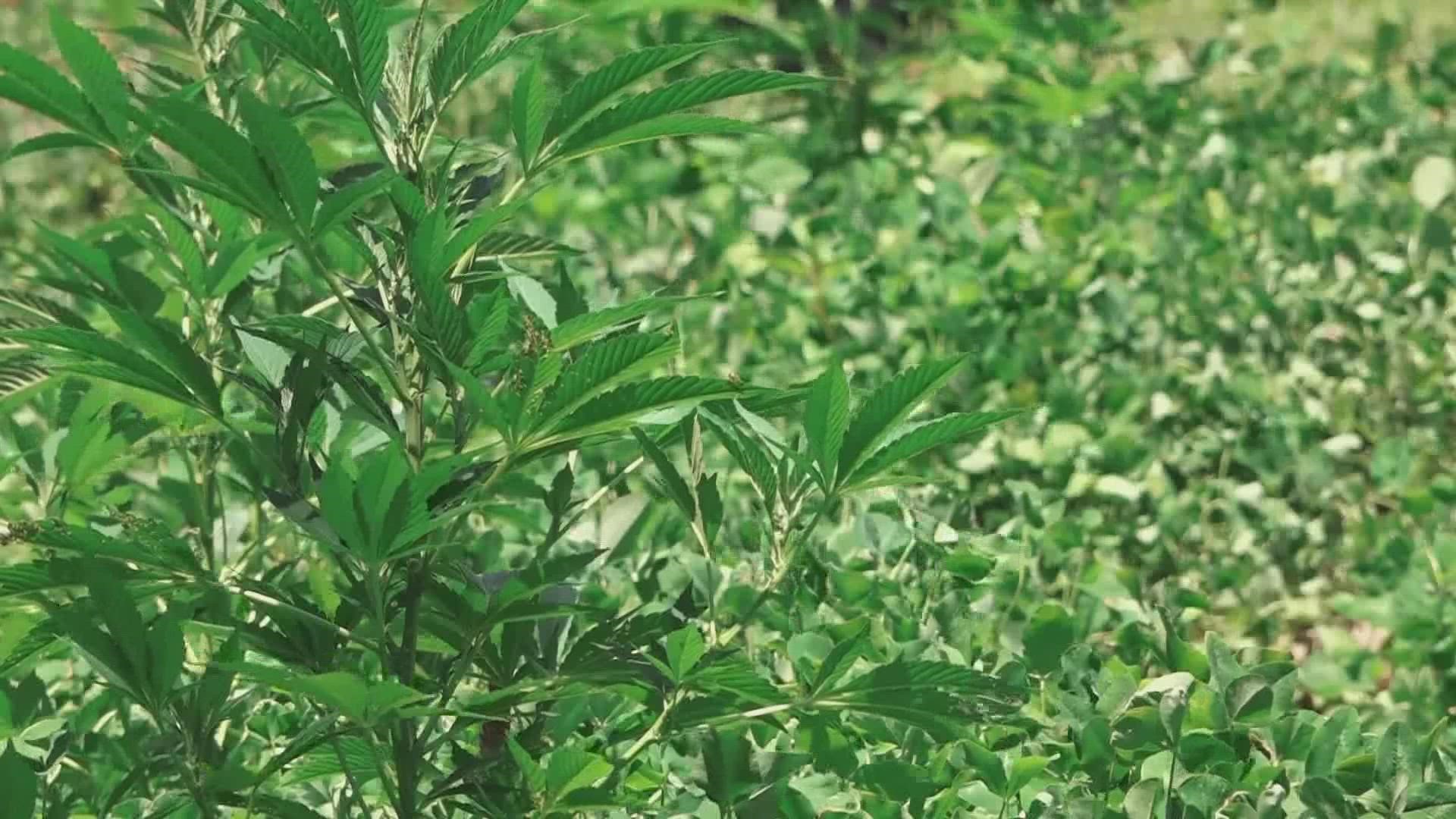NEW MARKET, Tenn. — After Tennessee became one of the first states to start a hemp pilot program in 2014, many farmers in East Tennessee are no longer growing it. They said that the crop can be too risky and cost too much.
One farmer in New Market said that he lost $100,000 after trying to grow hemp, after calculating all the costs associated with fuel, labor and fertilizer. He usually grows corn and soy on his farm and owned most of the equipment needed to grow hemp.
"Hemp is not booming in my world," said Danny Shelton, owner of Shelton Farms. "On paper, it looked like we were going to make a lot of money."
He said they grew hemp on around 40 acres of land. Then, he said the price fell and the farm was stuck with the crop.
For around four years, East Tennessee farmers made profits by growing and selling hemp, since Tennessee was one of the few states where it was legal to do so. When it was legalized on a federal level in 2018, farmers said they had nobody to sell it to.
"I've probably still got somewhere in the neighborhood of 70,000 gallons of CBD," Shelton said. "It's hard to tell what the market is going to do."
The Tennessee Department of Agriculture and the Hemp Alliance of Tennessee is funding research aimed and discovering new uses for hemp. They are also looking at ways to improve how the plant is transported, as well as logistics, costs and potential profits from processing hemp fiber in Tennessee.
Hemp fiber is not used to make CBD or Delta-8 products. It's used to make paper, clothing, shoes and food. The groups are investigating whether farmers will be able to make money by growing hemp for these kinds of products.
"It takes time," Dr. Mitchell Richmond with the UT Institute of Agriculture said. "If you look at the time it takes to get the information, as well as the time it takes to get out there, it's kind of a venture into the unknown, per se."
The UT Institute of Agriculture will hold a field day in Milan at the end of July for farmers who want to learn more about growing hemp.

